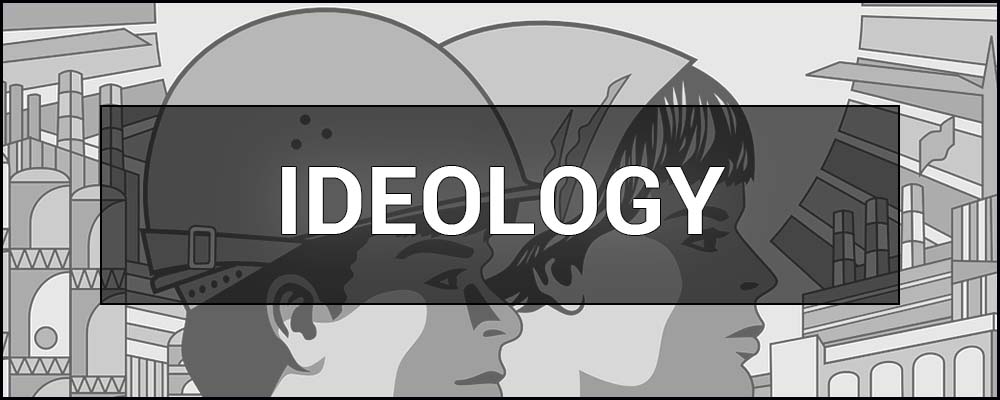Ideology is a set of doctrines, myths, beliefs, and concepts that guide a person, social movement, institution, class or large group of people. The ideology and mechanisms for its implementation can develop and exist in the political, social, cultural and other areas of society.
What is IDEOLOGY – definition and meaning in simple words.
In simple words, Ideology is a system of ideas that tries to explain the world and change it. It exists in the form of a social or political philosophy, and also includes a program of action to achieve certain goals. It should be noted that both practical and theoretical elements are important for ideology.
The word “ideology” does not have a single clear and correct definition. Among researchers, the definition of the word is often used in different ways. Usually people use this term in everyday communication to describe a large set of ideas and beliefs associated with a political system (usually a repressive, dictatorial or authoritarian system based on a single ideology) or worldview associated with religion or culture.
The French political philosopher Louis Althusser argued that:
Ideology is not just an illusion, highly vulnerable to truth, but a set of practices and ideas generated by social institutions such as the church, the media, and the school.
In this sense, ideology is a specific social mechanism that creates subjective positions. Globally, ideology determines our place in the social world.
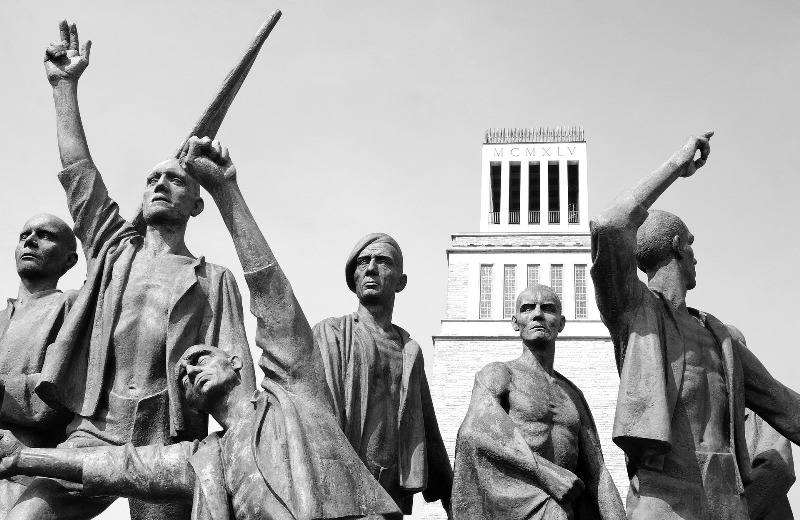
The origins of the concept of “ideology”.
The word “ideology” first appeared in French as idéologie during the French Revolution. It was first used by the materialist philosopher Antoine-Louis-Claude Destut de Tracy to define what he called his “science of ideas”. The philosopher claimed to have adapted the “science of ideas” from the epistemology of the philosophers John Locke and Étienne Bonnot de Condillac. For these philosophers, all human knowledge was the knowledge of ideas.
However, the modern usage and understanding of the term originated with Karl Marx. Marx defined “ideology” as the “false consciousness” of the ruling class in society, which offers its ideas as universal truth. Marx argued that the ideas of the ruling classes were neither universal nor objective, not true. They arose out of their class interests and preferences and serve them.
Today, the term “ideology” is used in a different sense than Marx’s original formulation. In a pejorative sense, the word means a set of ideas used as a political tool to achieve hidden goals through the distortion and change of social and political realities.
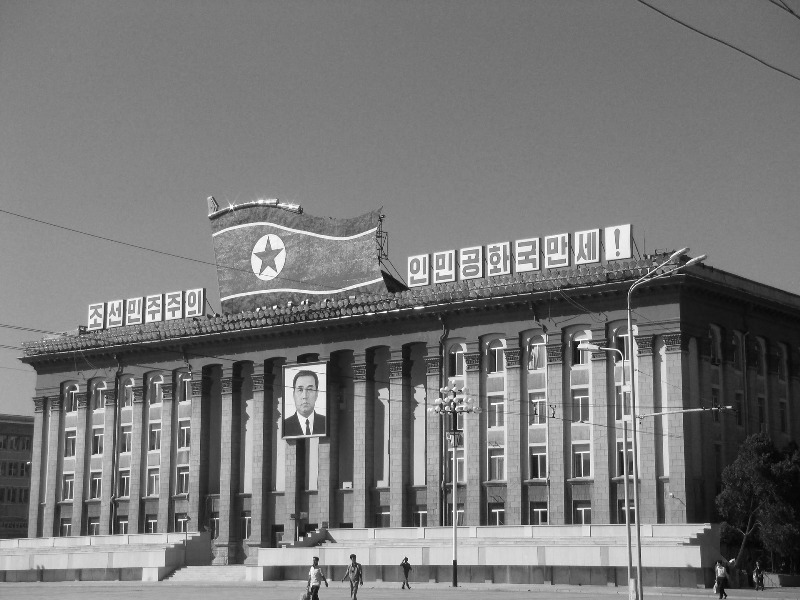
The main goals and objectives of ideology.
The main goal of ideology is to influence changes in society through the use of a normative thought process. The use of ideologies in public and social affairs makes them central and critical in politics. In fact, every political trend contains an ideology.
Ideology is the most important aspect in choosing goals and objectives that represent national interests. Ideology also influences how these goals are achieved.
Marxist concept of ideology.
Marxists used the word “ideology” to describe the set of ideas and beliefs that the ruling class uses to justify power and privilege. Marxists define ideology as a distorted consciousness that reflects an exploitative material reality that can be overcome through exposure. They believe that ideology is a fictional narrative necessary to maintain social order.
If we consider the word “ideology” objectively in fact, it is neutral. It can be positive or negative, depending on the point of view. The Marxist concept and interpretation of ideology is clearly negative. Essentially, ideology is used to hide the truth, to give people a false idea of how the world works. This is done to manipulate and control them. Marxists argue that if the proletariat really understood the exploitative nature of capitalist society, there would undoubtedly be a revolution.
Similar Marxist views on ideology are shared by many feminists, who argue that it is the patriarchal ideology that supports the dominant role of men in society. According to radical feminists, it is the belief that patriarchy is natural and normal that is a way of controlling women. This is very similar to the Marxist concept of false consciousness.
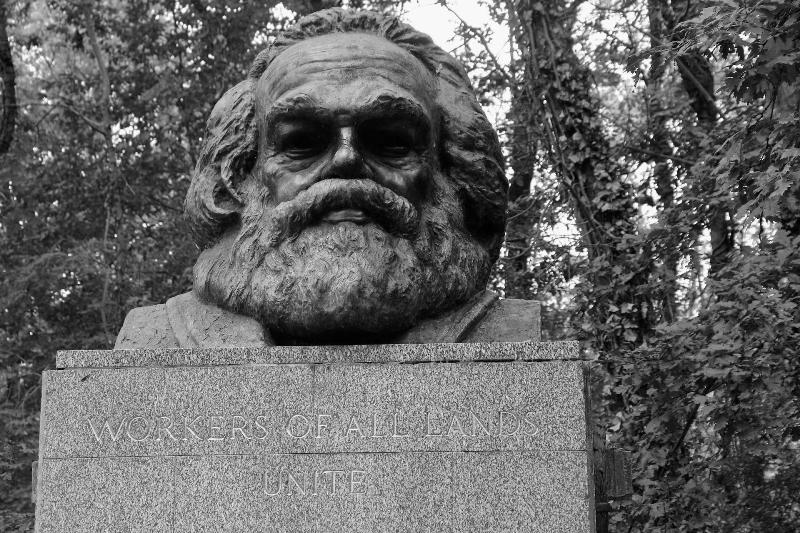
Non-Marxist definitions of ideology:
- Ideology is an abstract and closed system embedded in society that is difficult to study empirically.
- An ideology is a series of empirically established approaches to political issues that can be explored using behavioral methods.
- Ideology is a system of cultural symbols and political concepts, which are the most important resource for the understanding and existence of sociopolitical life.

Examples of political ideologies of the world.
- Classical liberalism is a capitalist ideology that promotes a government that does not interfere with the political, civil and economic freedoms of citizens.
- Social or modern liberalism is liberalism that focuses on individual freedom, social and economic objectives.
- Social Democracy advocates a peaceful transition from capitalism to socialism with representative democracy, including collective bargaining and public services.
- Neoliberalism is the ideas of free trade, privatization, deregulation and laissez-faire economic policies.
- Bolshevism was created by the workers who wanted to establish the dictatorship of the proletariat, the working class.
- Marxism is socialism, the goal of which was a classless society. The principles of Marxism include class struggle, the labor theory of value, and the dictatorship of the proletariat.
- Leninism was aimed at the dictatorship of the proletariat, based on Lenin’s theories of government.
- Communism promotes collective ownership of property, where one political party controls social and economic policy.
- Trotskyism advocated a revolution of the working class, bringing freedom and democracy.
- Stalinism is an authoritarian ideology where power belongs to one person.
- Maoism was aimed at the revolutionary power of the peasants and was Mao Zedong’s interpretation of Marxist and Leninist theories.
- The ideology of the status quo is the preservation of the existing positions of countries. The policies of states such as Switzerland, Denmark, Norway, and Sweden can be determined on the basis of the status quo.
- Imperialism is an ideology that aims to change the status quo or a given distribution of power. The policy of imperialism seeks to change the existing territorial arrangement of the world in order to prove that the status quo it wishes to overthrow is not necessary.
- The ideology of peace is used to criticize policies directed against peace. War is an evil and illegal instrument of international relations. Nowadays, people fear and hate war because of its completely destructive nature. This fear of war directly contributes to the love of peace as the ideal of international relations.
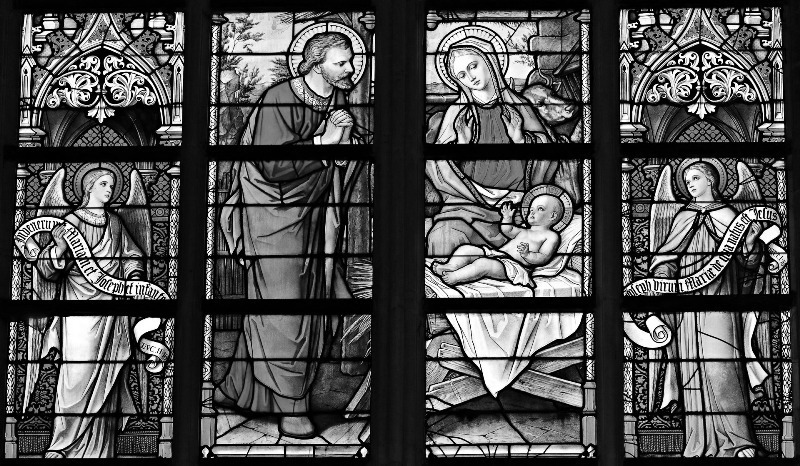
- Ecological ideology is aimed at preserving the environment, green practices, green economy, etc.
- Racism places the blame for certain social conditions on one or more races of people (this ideology leads to divisions between races, racial prejudice and discrimination).
- Feminism aims to fight for the equality of women economically, socially and politically.
- Gender ideology concerns the attitude of men and women to their place in society, their rights, and duties.
- Individualism aims at the value of each person and focuses on self-sufficiency and freedom.
- Equality of Opportunity is an ideology that aims to eliminate discrimination based on age, gender, color, race, national origin, religion and disability, including physical and mental disabilities.
- All religions are ideologies, each of which has varieties of beliefs.

